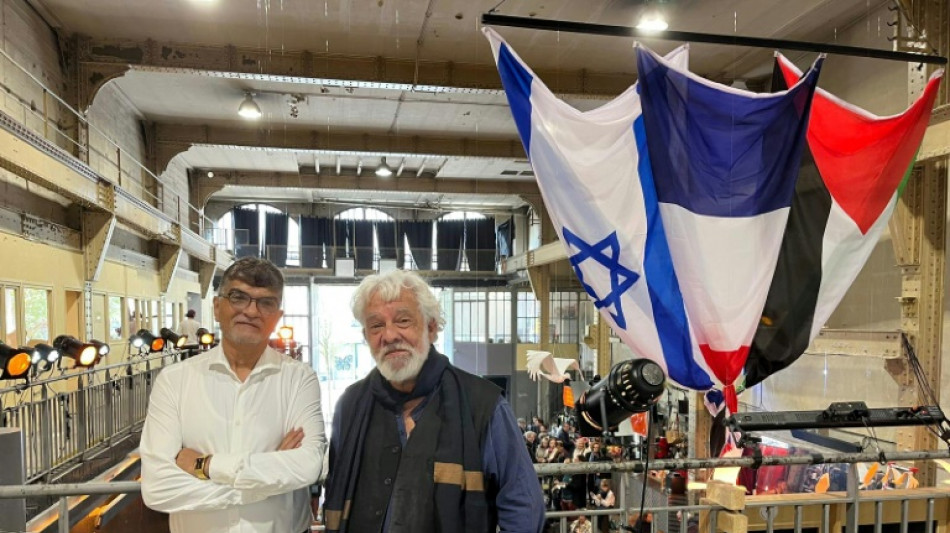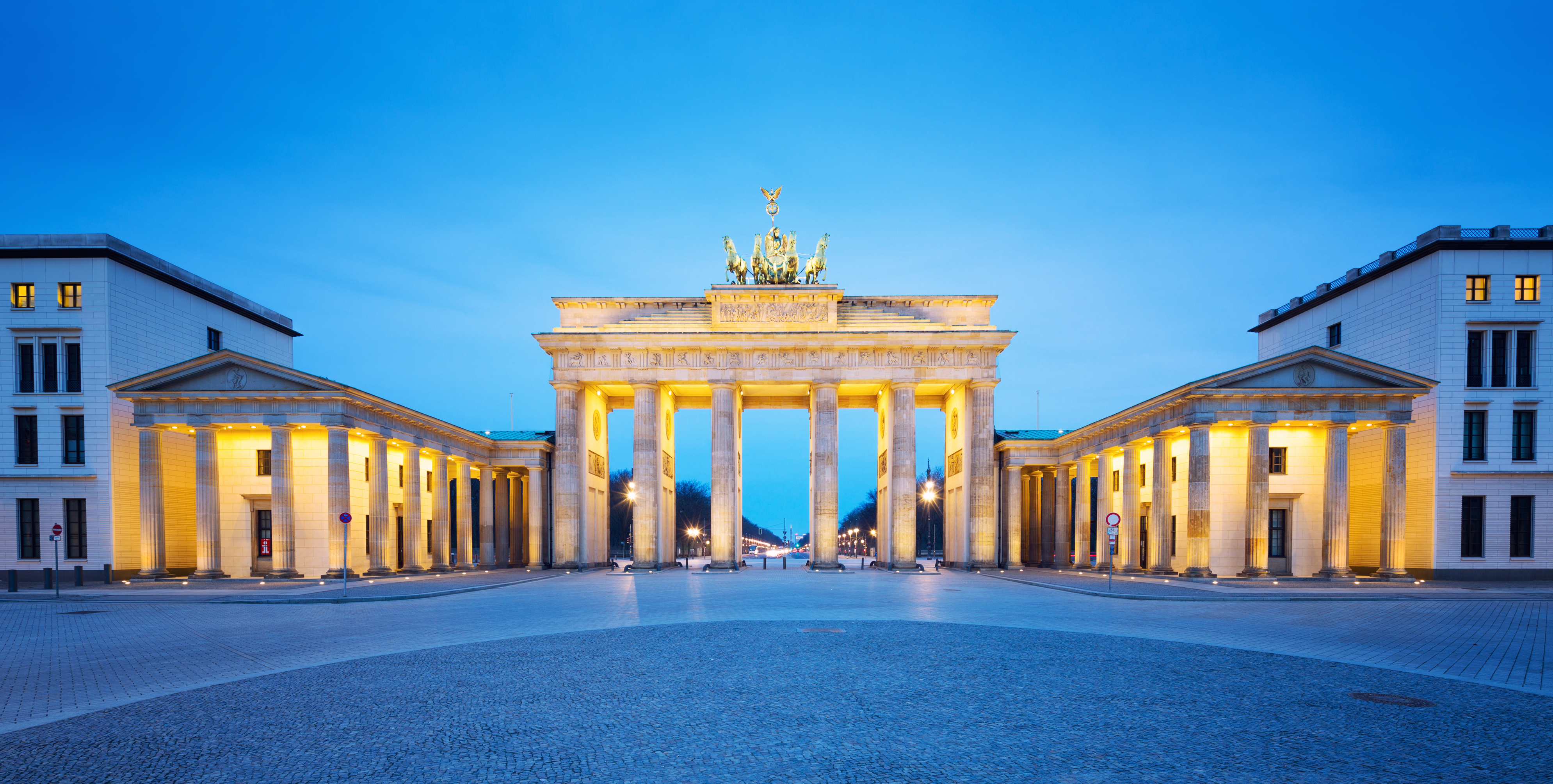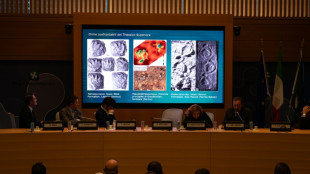

'Taste of peace': Palestinian, Israeli join forces in Paris
A new restaurant opened its doors in Paris on Saturday, founded by a Palestinian from Gaza and a Franco-Israeli, aiming to promote reconciliation through food.
The Palestinian, French and Israeli flags fly from the ceiling of "Sababa, the Taste of Peace", where the first customers packed in to eat hummus, falafel or Gazan salad.
Radjaa Aboudagga and his team have been toiling since 6:00 am to create the Middle Eastern dishes for families and friends of all ages seated on mats or at tables.
"Everything is handmade," said Aboudagga, a Franco-Palestinian originally from the Gaza Strip, in the restaurant's crowded kitchen, as he prepares "manakish", a flatbread topped with cheese, ground beef and herbs.
The restaurant, which will be open four nights a week until June next year, was conceived with Franco-Israeli Edgar Laloum, in partnership with the "Nous reconcilier" (We Reconcile) group.
"I'm happy about this day because it comes at a time when there is finally hope there too," said Laloum as Aboudagga looked on, referring to the expected return of Israeli hostages and the release of Palestinian prisoners.
Laloum, who lived for 30 years in Jerusalem, said the restaurant's menu is made of "dishes that Israelis and Palestinians eat in the same way".
"The two peoples, Palestinian and Israeli, have the same customs, the same dreams, the same tears and the same sadness," added Aboudagga.
"We share the same land, we all have to live together on it," he added, welcoming the decision of the French government and others to recognise a state of Palestine.
- Joie de vivre -
The restaurant is housed at the Consulat Voltaire, an old electricity sub-station turned cultural centre, in the 11th district of Paris near the place de la Bastille.
One customer, Raphael, who did not want to give his last name, told AFP that the three flags were "symbolic".
"It's very beautiful and I was explaining to my son that, in the end, we can all live together."
Another diner, Henri Poulain, 57, said he saw it as a sign of "reconciliation" and "a link between the French Republic on the one hand" and "these two states, one of which has yet to be born".
Even if the war were to resume in the Gaza Strip, he said he was convinced "it wouldn't weaken a place like this".
Psychosociologist Joelle Bordet, 72, said she thought the word "reconciliation" was "too strong".
"Just being together in the same space, when you're effectively enemies, is extraordinary," she said. "I can't do it today in my network with Russians and Ukrainians."
Next to Bordet was Nour-Eddine Skiker, head of the "Jalons pour la paix" association, some of whose volunteers came with a local youth council group to lend a hand.
"In this very small space, there is room for everyone," he said.
One of the young volunteers, Mboreha Ahamed, 23, added: "Being here under these three flags is super symbolic... over a meal where we think of other things."
At about 2:00 pm, the queue to order mezze was long.
Readings of poems in Hebrew, Arabic and French, discussion groups and concerts were all planned, all, in the words of the restaurant's founders, in the spirit of "joie de vivre" -- the meaning of "Sababa" in both Israel and the Palestinian Territories.
P.Fuchs--BVZ



